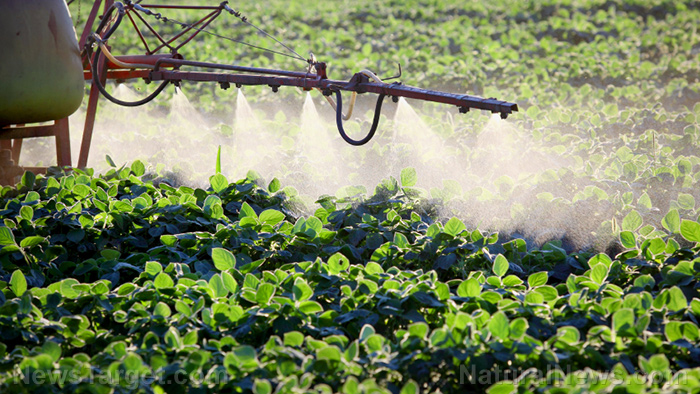California just banned pesticide use near public schools to protect children from brain damaging agricultural chemicals
11/15/2017 / By Isabelle Z.

Many parents are breathing a sigh of relief as California has now taken a definitive step in protecting their children from pesticides. Farmers will no longer be allowed to use certain pesticides in areas near schools and daycares thanks to new rules that were announced this week.
The rules, which regulators have described as being among the toughest in the nation, see California farmers banned from spraying pesticides anywhere within a quarter-mile radius of public schools and licensed daycare centers between the hours of 6:00 am and 6:00 pm during school weeks starting on January 1 next year.
The rules will apply to most powder and dust pesticides that winds could blow onto school grounds, along with air blasters used to spray orchards and crop dusters that fly over fields.
Some counties already have laws in place creating buffer zones around schools where pesticides cannot be sprayed, but many only cover 500 feet, and this new rule applies to the entire state.
It is expected to affect around 2,500 farms in the state that grow crops like strawberries, almonds and grapes for wine. If they violate the rule, they’ll face fines of $5,000. In addition, they’ll be required to report the pesticides used near schools to the schools themselves and county agriculture offices, and the schools might choose to share the information with parents.
According to Bakersfield Now, fumigants will be subjected to further restrictions. Farmers will not be allowed to use fumigant pesticides 36 hours before a school day as well.
Farmers are not greeting the rule with open arms, with some claiming they are unfairly targeted because local schools choose to build in farm areas where land is cheaper.
Some areas already have local restrictions governing the use of pesticides in school areas. In Kern County, for example, growers have been prohibited from spraying pesticides when classes are in session or school-sponsored events are taking place for more than a decade, and they are also banned from spraying aerial applications of any restricted materials within a quarter mile of residential areas an occupied labor camps.
Protecting children from cancer and other health problems
The new rules mean that around 4,100 schools and daycares will get some extra protection from the health problems that pesticide exposure can cause. Pesticides have been linked to several types of cancer, including non-Hodgkin’s lymphoma, leukemia, liver cancer, bone cancer, and brain cancer. It’s particularly risky in children under the age of 12, whose bodies are still developing.
Since 2005, more than 50 people have gotten ill from pesticides that drifted into schools. In one high-profile recent incident, two dozen students and staff members at the Coachella Valley High School got sick after a farmer sprayed a pesticide nearby and the wind suddenly changed direction.
Latino schoolchildren may have the most to gain as studies have shown that Latino kids in Monterrey County are 320 percent more likely than their white peers to be exposed to pesticides at school.
Nevertheless, many people feel that the regulations don’t go far enough. While Californians for Pesticide Reform Co-Director Mark Weller is glad that something is being done, he said: “This is a big missed opportunity because they have not created a policy that addresses long-term exposure. Long-term exposure, even in tiny amounts, can cause cancer, brain damage and reproductive damage.”
He cited the long-running from the University of California, Berkeley’s Center for the Health Assessment of Mothers and Children Salinas, which looks at pesticide exposure and how it affects women and children in the farmworker communities of the Salinas Valley. That study showed that pregnant women near fields sprayed with pesticides had a higher likelihood of having children with health issues like reproductive problems, stunted lung function and nerve damage.
Sources include:
Tagged Under: California, child health, environment, fumigants, inadequate regulations, pesticide buffer zones, pesticide drift, pesticide exposure, protection from chemicals, public schools, school safety, toxins




















